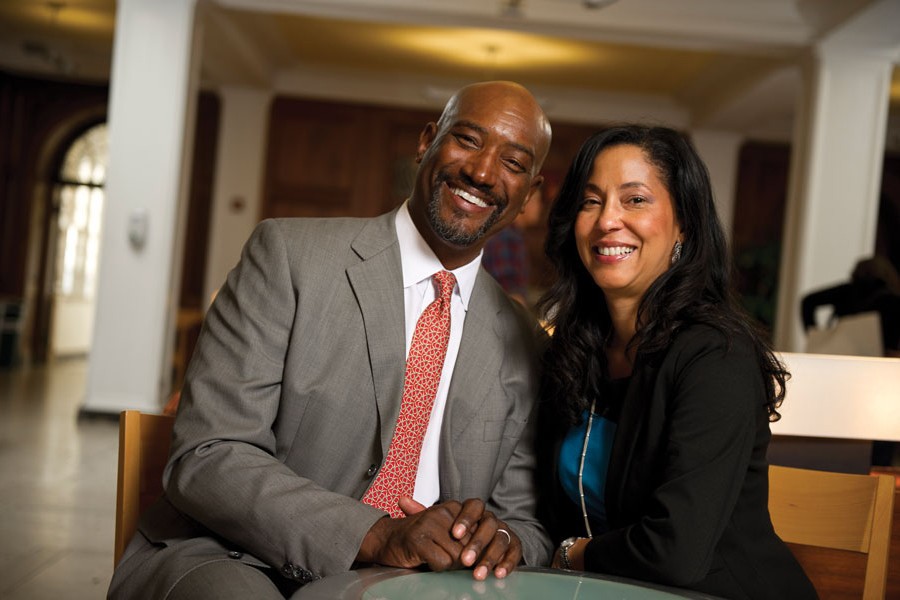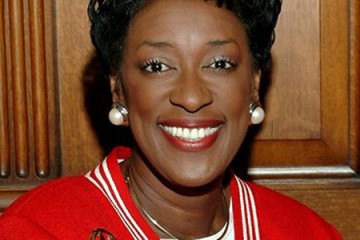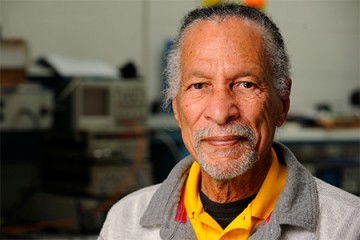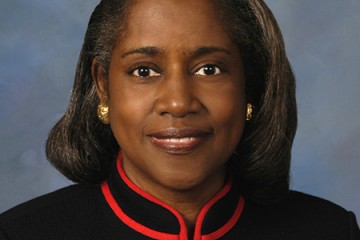This profile is among 61 originally created for the Indispensable Role of Blacks at Johns Hopkins exhibit, which is presented jointly by the Johns Hopkins University Black Faculty and Staff Association, the Office of the President, and Development and Alumni Relations. In celebration of Black History Month, the Hub will publish select profiles from the exhibit throughout February.
A self-described nerd, Janine Austin Clayton arrived at Johns Hopkins University as a freshman knowing exactly what she wanted to get out of her education at the school.
She dove into her coursework and balanced her academic pursuits with dance classes at the Peabody Institute and trips to nearby museums. Clayton was aware that she was one of a small number of African-American students on campus, but she was not fixated on it. Her focus was on a degree, and a career in medicine and science. Thoughts of paving the way for other blacks at Hopkins would come later.
She volunteered at Johns Hopkins Hospital in the neonatal unit, she worked for the psychology department, and she pledged Alpha Kappa Alpha sorority.
As a student studying natural sciences, she valued the time she spent conducting research and working in labs—opportunities not usually afforded undergraduate students on many college campuses. That research experience, combined with the policy side of medicine, would serve her well in her career as a top government health official.
Clayton graduated from Hopkins in 1984. A board certified ophthalmologist and director of the Office of Women's Health at the National Institutes of Health, she is an authority on autoimmune ocular diseases and the role of sex and gender in health and disease. She has authored more than 80 scientific publications, journals, and book chapters.
Her husband, Robert B. Clayton, was a model Johns Hopkins University student by any measure. A member of the Black Student Union, Alpha Phi Alpha fraternity, and four-year member of the varsity basketball team (including two years as captain), he was as passionate about his extracurricular activities as he was about his academic pursuits.
Upon his graduation in 1984, he went on to earn a law degree from the University of Michigan in 1987, and start a successful family law and civil litigation career in Los Angeles. Through his law practice, he has handled an extensive portfolio of cases, including representing a number of well-known celebrities and professional athletes.
While building their professional careers, the Claytons have remained active at Hopkins, serving on the Alumni Council and the Society of Black Alumni, and participating in the mentoring, recruitment, and enhancement of the black student experience on campus.
"We want to see them do well and to let them know they don't have to be one way at Hopkins," said Janine.
Robert provided insights on key Hopkins strategic initiatives such as the formation of the Center for Africana Studies. He also helped form the Men of Color Hopkins Alliance, a mentoring program for male students of color at Hopkins. He often tells those young men and other students of color that they can do it all at Hopkins and not be excluded based on their race.
"I don't want the students who come after me to have a bad experience," he said.
Posted in University News
Tagged black history month













